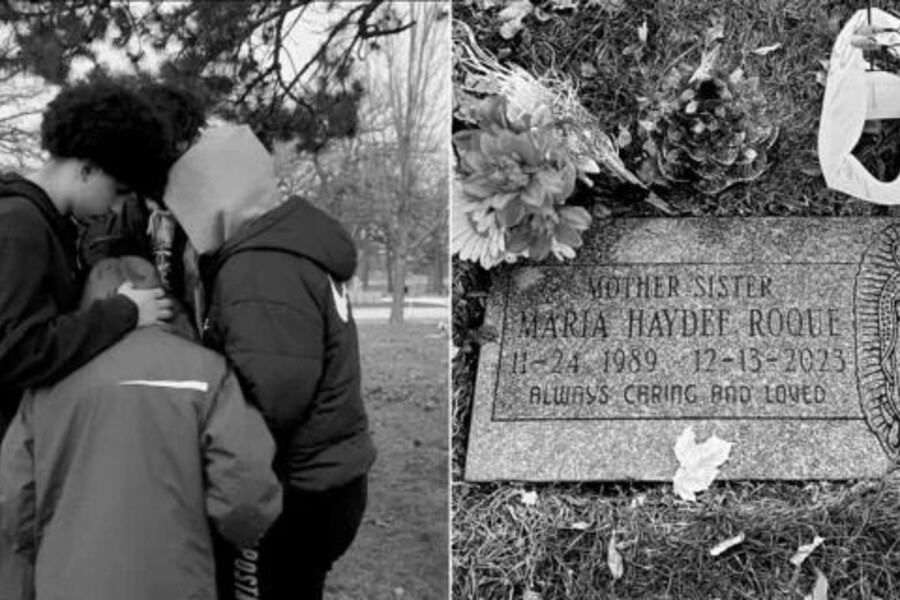A year after the tragic death of Maria Roque, a mother from Chicago’s West Side, the systemic failures in protecting domestic violence victims are under scrutiny. Roque’s death highlights the gaps in enforcing protective orders—legal measures designed to shield victims from abuse but often rendered ineffective due to administrative and procedural inefficiencies.
Roque was shot and killed on December 13, 2023, in front of her home while her two children watched in horror. Her alleged killer, Kenneth Brown, was her ex-boyfriend who had a history of abuse and harassment documented in numerous police reports. Despite Roque’s efforts to obtain an emergency protective order against Brown, it was never served by the Cook County Sheriff’s Office or any law enforcement agency. This failure left her vulnerable to ongoing abuse and, ultimately, her murder.
Roque’s case is emblematic of a broader problem in Cook County, where thousands of protective orders go unserved each year. According to data from the Cook County Sheriff’s Office, between 2021 and 2023, only 19,000 out of 77,000 protective orders—roughly 25%—were successfully served. This gap leaves victims of domestic violence, like Roque, unprotected and at continued risk. In areas like the Austin neighborhood, where Roque lived, service rates were even lower, with fewer than 20% of protective orders served.
Despite securing an emergency protective order, Roque found no relief. The order required Brown to stay away from her, but it remained unenforced. While waiting for the order to be served, Roque filed multiple police reports documenting continued harassment. She reported incidents ranging from tire slashing to threatening calls and messages. On her last birthday, Brown allegedly set her car on fire. Each time, the police classified the cases as “suspended” or “unfounded,” citing the unserved protective order as a barrier to enforcement.
The protective order process, known as “service,” is a critical step in ensuring victims’ safety. Without serving the order, law enforcement cannot enforce its terms. In Roque’s case, sheriff’s deputies attempted to serve the order twice but were unsuccessful, citing issues such as locked doors and the lack of a unit number. Ultimately, it was Roque herself who convinced a relative of Brown to bring him to court, where he was finally served weeks after the order was issued. This placed her in direct contact with her abuser—a risk no victim should be forced to take.
The tragedy of Roque’s death has prompted questions about law enforcement’s role and accountability. Cook County Sheriff Tom Dart acknowledged the shortcomings in the system, calling the failure to serve orders a systemic issue. He cited logistical challenges, including incorrect addresses and limited resources, as major obstacles. However, Dart also emphasized that improvements have been made, with service rates increasing to over 50% in certain periods of 2024. Still, these gains are far from adequate, and advocates argue that more needs to be done to protect victims.
Roque’s family has been vocal about the need for reform. Her brother, Andres, has filed a formal complaint with the Chicago Police Department, questioning their handling of her reports and their failure to act on her allegations of harassment. He believes that missed opportunities to arrest Brown or serve the protective order contributed to his sister’s death. “Maria deserved better,” he said. “The system failed her at every turn.”
The shortcomings of Chicago’s protective order system extend beyond Roque’s case. Thousands of victims across the city and Cook County face similar challenges. Law enforcement agencies can assist in serving protective orders through a statewide database accessible to all officers. However, this mechanism, known as “short form” service, was not utilized in Roque’s case. Advocates stress that better coordination between the Cook County Sheriff’s Office and local police departments is essential to improving service rates and protecting victims.
Roque’s death underscores the urgent need for systemic change. Advocacy groups are pushing for reforms, including streamlined processes, increased resources for law enforcement, and enhanced accountability. They also emphasize the importance of raising public awareness about the challenges victims face and providing them with tools to create safety plans.
As Roque’s children rebuild their lives with the support of family, her legacy serves as a call to action. Her family hopes that by sharing her story, they can prevent similar tragedies and inspire meaningful reform. “If we can save even one life, then Maria’s fight wasn’t in vain,” Andres said.
The failure to serve protective orders is not just a bureaucratic oversight—it is a matter of life and death. By addressing the systemic flaws that left Roque unprotected, Chicago can work toward a future where victims of domestic violence receive the protection and justice they deserve.
